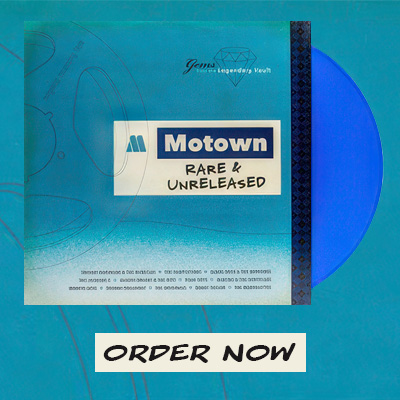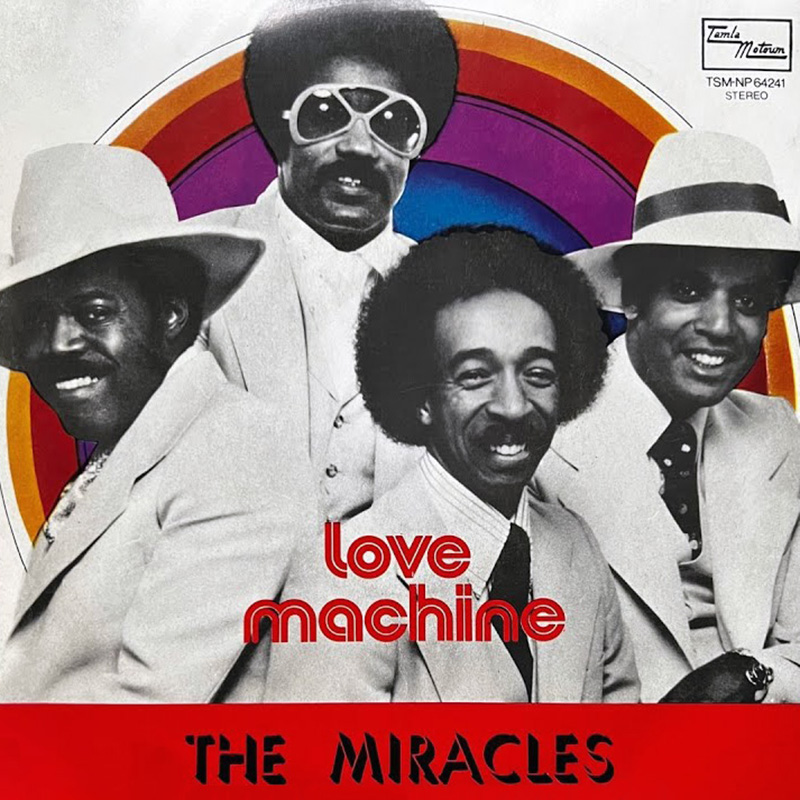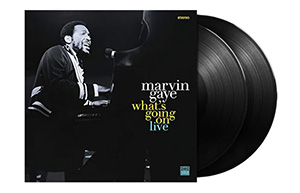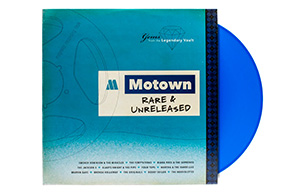The Miracles “Love Machine”
Number One on the Billboard Hot 100 for week ending Saturday, March 6, 1976.
After Smokey Robinson retired from the Miracles in 1972, they set about recruiting a new lead vocalist. In liner notes for Love Machine: The ’70s Collection, a 2003 package of their post-Smokey work, group member Pete Moore recalled, “After several auditions, we heard Billy Griffin. Auditions over.” The Baltimore-born singer proved to be a perfect fit – and what’s more, he wrote songs. “His chord progressions and melodies were great,” continued Moore. “I had stopped writing with Smokey, with whom I’d worked the most, and Billy was just what I was looking for.”
The Miracles’ first few singles with Griffin were co-written and produced by Freddie Perren, a Motown staffer who had played a vital creative role with the Jackson 5. The quartet’s first major hit with Billy’s distinctive voice was 1974’s “Do It Baby,” a Top 20 success on the pop charts, and Top 5 on the R&B best-sellers. “I think of [Freddie’s] tracks as semi-classical,” remembered Moore. “A touch of sweeping strings, or a horn part that brings up strong emotions, and always in perfect pitch.”
“Love Machine” was composed by Griffin and Moore. With the latter’s assistance, Perren produced the record, and arranged the propulsive rhythm track. Griffin told Blues & Soul that he had the idea of a concept album about Los Angeles while looking out of a hotel window, “thinking about all the people who must come here with aspirations of making it.” The result was City Of Angels, a so-called “soul opera” of songs about two souls searching for love and fame in Hollywood. It came out on the Tamla label in September 1975, with “Love Machine” as the first single – a seven-minute two-parter – released at the same time.
Opening with the deep-throated roar of the Miracles’ Bobby Rogers, “Love Machine” tapped into the exploding disco market, but took its time climbing the Hot 100. It eventually claimed the summit (from Rhythm Heritage’s “Theme From S.W.A.T.”) in March 1976 during its 20th chart week. In Britain, the single had reached the Top 3 a few weeks earlier. “This was a special time for the group,” said Pete Moore. “We were able to continue the legacy. As Smokey said, in response to skeptics who thought we couldn’t make it without him, ‘All you have to do is listen.’”
“Love Machine” crossed the Atlantic, as noted above. Not only was the Miracles’ original a major U.K. hit, but one of that country’s biggest acts of the ’80s covered the song. Wham! with George Michael and Andrew Ridgeley rendered a faithful remake on their 1983 Number One album, Fantastic. In the U.S., the act was known for a while as Wham! U.K., and Fantastic had a brief chart run, before George and Andrew’s popularity exploded with “Wake Me Up Before You Go-Go” – a tune with much of the same energy as “Love Machine.” Before all that, however, Motown’s own Thelma Houston remade the Miracles’ hit on her 1979 album, Ride To The Rainbow. The track was produced by Hal Davis, and featured drummer James Gadson, who also played on jazz trumpeter Blue Mitchell’s 1976 cover of “Love Machine,” for his album Funktion Junction.
The front-cover art of City Of Angels shows a star in the Miracles’ name on the Hollywood Walk of Fame, while the back cover displays the album’s songs within a similar star. The irony is that the group was not actually honored on the Walk of Fame until 2009, even though Smokey himself had gained recognition there in 1983. (A similar disconnect occurred at the Rock & Roll Hall of Fame: Smokey was inducted in 1987, the rest of the group in 2012.) At the March 2009 ceremony for their star on the Hollywood Walk of Fame, the original Miracles’ Pete Moore, Bobby Rogers and Claudette Robinson were present, as was the family of the late Ronnie White. Also in attendance: Billy Griffin, Smokey, Stevie Wonder, Mary Wilson of the Supremes, and Motown founder Berry Gordy. Finally, life lived up to the artwork.














